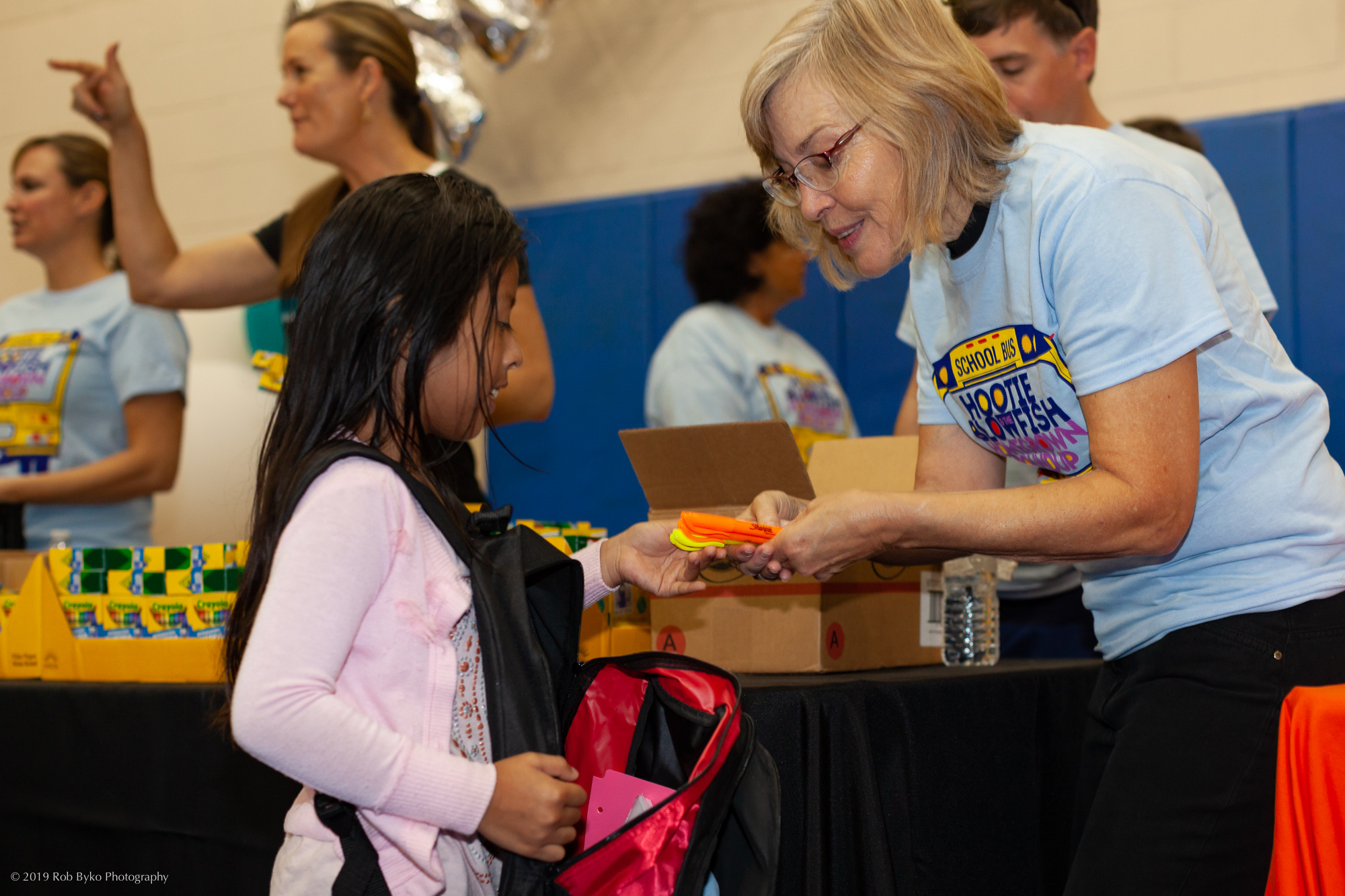September 27, 2016 – Our most recent message from nonprofit organizations in our region comes from Darrin Goss of the Coastal Community Foundation. Goss, who is the President and CEO of the Coastal Community Foundation, has been on board for seven months and comes from serving as a leader in a number of nonprofit organizations across the country, most recently as President and CEO of the Capital Area United Way in Baton Rouge, Louisana. He received his undergraduate degree from Wofford College, a masters from North Greenville University, and is a veteran of the United States Army. In 2010 he participated in the Riley Institute’s Diversity Leadership Institute. He is an avid golfer and is glad to be back in the Lowcountry after 27 years away.
The CCF was founded, with the help of our own club, in 1974, and Goss used the biblical analogy of the house built upon a rock to explain how the strength of the CCF can be traced back to its origins. He remarked how important it is for the CCF to remain strong, because it is the source of relief for our community when the storms of the world overtake us. After Hurricane Hugo the CCF provided $3.7 million in assistance. In 2007 when the Sofa Super Store fire devastated our fire-fighting community, the CCF was there, and last year when the winds of hate blew through Mother Emmanuel Church, again the CCF was there. Goss says his task as President and CEO of the CCF it to ensure that the CCF is ready for the next storm, whatever it may be.
There are several factors which Goss believes affect this readiness which include the financial and market environment, the increasing competition for donor dollars, changing donation methods and platforms, evolving donor expectations and the changing nature of the donors themselves. From its humble beginnings the CCF has grown to manage assets totaling over $217 million which allows the CCF to make grants totaling over $20 million in the most recent fiscal year, but the CCF has set an ambitious goal of soon reaching over $500 million. To reach this goal, the CCF must work with partners, such as local United Way organizations, throughout the nine counties it serves – Charleston, Beaufort, Berkeley, Colleton, Dorchester, Georgetown, Hampton, Horry and Jasper.
The partnership skills of the CCF give it the ability to provide best in class stewardship for our community’s capacity to give. The CCF strives to recognize opportunities to team up like-minded donors with community needs, to engage the newest members or our community as more and more people relocate to the Lowcountry and to build the knowledge or all citizens to the very concept of philanthropy. Goss says, however, that the mission of the CCF must and does extend beyond mere giving. Instead the CCF also attempts to discover what local needs must be addressed to ensure that its giving is effective and more completely fulfills the needs of our community. The CCF also provides assistance to local non-profits to obtain grants. As Goss stated, the goal of the CCF is to go beyond providing a hungry man with a fish or even to teach the man to fish, but also to ensure that there are fish in the pond and that the rod works!
In answer to a question about the CCF’s decision to end sponsorship of the Low Country Giving Day, Goss lamented the fact the effort to do so in year’s past simply put too much strain on the CCF’s limited resources. That effort was creating difficulty in meeting the core needs of the foundation. The CCF learned that the fiscal support required for the Low Country Giving Day was creating donor fatigue among the donor agencies which created challenges for meeting the CCF-identified needs of our community.
Goss was excited about changes being made at the CCF. In years past program officers were so inundated with grant requests that it was difficult to get into the community to identify community needs. By creating stewardship officers tasked with reviewing grants from the donors’ perspectives, other program officers are freed up to reach out to community leaders and service providers to identify community needs, ensuring that giving is effective and provides our community with the greatest return from the giving resources available. These changes and others will allow the Coastal Community Foundation to meet the needs of the Lowcountry for years to come.
— Alex Dallis, Keyway Committee


